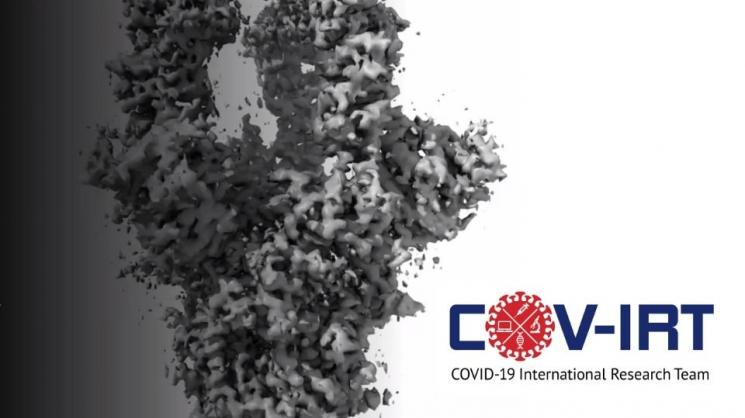On Friday, July 17th, the COVID-19 International Research Team (COV-IRT) held an online symposium on the virus co-sponsored by the Rice Department of Computer Science and the Ken Kennedy Institute (K2I). The event brought together an international team of researchers investigating the COVID-19 pandemic and its potential treatment. It was co-organized by Rice University computer scientist Todd Treangen along with postdoctoral researcher Leo Elworth. Elworth also moderated the event and K2I executive director Angela Wilkins helped with the symposium logistics.
“Despite the extremely concerning COVID-19 situation in Houston, I'm encouraged by both positive vaccine and therapy news, in addition to better understanding of how this devastating virus is transmitted from person-to-person,” Treangen said after the event.
It was the second COV-IRT symposium put on by the group. Their first was held in April. This one followed in its footsteps, bringing in representatives from 34 states and 20 countries. Besides the United States, the highest percentage of international viewers came from India, Argentina, Brazil, Portugal and Germany. Of the nearly 500 participants, half came from the world of academia, thirty percent came from government, and the rest were from other industries.
“[It] exceeded our expectations,” Treangen said when asked about how it went. The participation of the Zoom crowd was high, with 50 questions asked and answered about the fifteen COVID-related topics covered during the event. Some of the highlights from the day’s list of topics, according to Treangen, were:
Fiona Brinkman from Simon Fraser University in British Columbia shared several great insights specific to the COVID-19 genomics network she is leading in Canada.
Kizzmekia Corbett, who is at the Vaccine Research Center at the National Institute of Allergy and Infectious Diseases (NIH), shared key insights specific to the promising performance of Phase 1 vaccine clinical trials, and the start of Phase 2 clinical trials.
Peter Hotez of the Baylor College of Medicine shared the latest updates on COVID-19 prevalence and impact of COVID-19 on at risk communities.
Michael Joyner of the Mayo Clinic shared updates on the performance of convalescent plasma therapy for COVID-19.
Don Milton from the University of Maryland shared his latest work on understanding the spread of COVID-19 via aerosols and using these insights to help assess indoor transmission.
At the end of the symposium, Rice Provost Reginald DesRoches provided closing comments on the COVID-19 research efforts at Rice, including emphasizing the importance of Lauren Stadler’s important wastewater research project in partnership with Houston Water.
Co-organizer Treangen noted that there was an “impressive amount of work done” on the disease in four short months overall. He hopes that this level of cooperation amongst colleagues around the world could continue into the future, battling unknown pandemics and even cancer, heart disease and Alzheimer’s.
“COV-IRT goals include continuing to bring the international COVID-19 research community together by targeting representation from additional countries across the globe,” he said, “while continuing to focus on collaborative science and outreach.”

